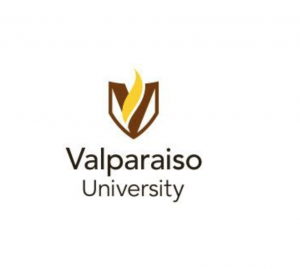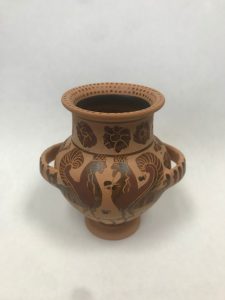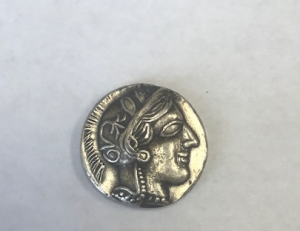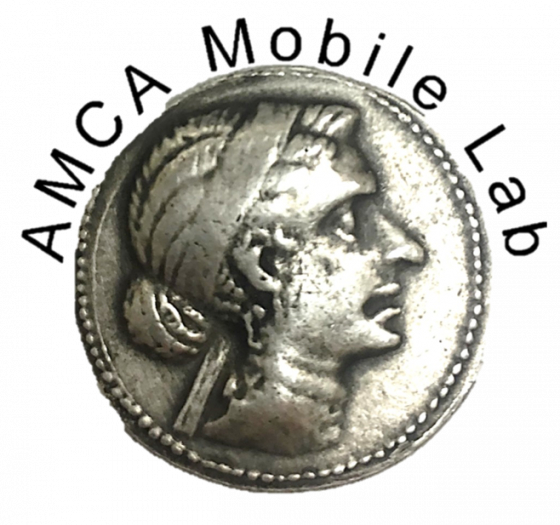This past year the Ancient Mediterranean Archaeology and Classics Mobile Lab had the opportunity to loan out a handful of our items to Dr. Allannah Karas, Assistant Professor of World Languages and Cultures at Valparaiso University.  Below, Dr. Karas shares her experiences receiving and integrating the materials from our lab into her classrooms. We are excited to continue loaning out items from our collection to individuals and institutions beyond just our Indianapolis community, and ultimately engaging more people with the Ancient World!
Below, Dr. Karas shares her experiences receiving and integrating the materials from our lab into her classrooms. We are excited to continue loaning out items from our collection to individuals and institutions beyond just our Indianapolis community, and ultimately engaging more people with the Ancient World!
“I’m a firm believer that students best understand the ancient world through direct engagement with the material remains and physical culture of that world. I am an Assistant Professor and Section Head of the Greek & Roman Studies Program at Valparaiso University. Thanks to the generosity of the Butler University (and the support of the Valparaiso University Committee to Enhance Teaching and Learning), throughout the entire Spring semester 2019 I could provide my students in “Introduction to Greek & Roman Archaeology” a hands-on experience with the material culture of ancient Greece and Rome through the magnificent replicas loaned to us by the Butler AMCA Mobile Lab.
What is more, the entire process of my borrowing of these items attests to the collegiality, service-oriented pedagogy, and professional development which AMCA Mobile Lab is generating not only for Butler University and its students but potentially also for faculty, students and institutions of higher learning throughout the state of Indiana.
I arrived at Valparaiso University in Fall 2017 with the task of revitalizing our Classics (now, Greek & Roman Studies) program within the Department of World Languages and Cultures. Within the same year, also, I came into contact with Dr. Lynne A. Kvapil and Dr. Chris Bungard, who not only generously shared their advice about my program’s new curriculum but also offered to loan items from the Mobile Lab in order in support of Valpo students interested in archaeology.

The process was marvelously simple and professionally handled. Some very competent student lab interns, particularly Gracie Munroe and Lilly Hinckley, ensured the proper shipping and delivery of the items to my office and checked in from time to time to confirm that everything was working out well for the integration of the artifacts with my pedagogical plans for the course.

Many thanks to the generous collegiality of Dr. Kvapil and Dr. Bungard as well as the highly professional and innovative pedagogical service of all involved with the Butler University AMCA Mobile Lab! It was a hugely helpful resource for us here at Valparaiso University and we hope that many other students and teachers will take advantage to enrich their experience of the ancient Mediterranean world through your excellent work.
-Dr. Allannah Karas”
Thank you so much Dr. Karas for your kind words and your partnership with us!
